Maine Church History Research
Intoduction
- What are we? "TO BE ACCURATE" We do have to be "something". Why? It is difficult to function as a body when our differences are perceived as "fundamental".
James 1:27 — Pure religion and undefiled before God and the Father is this, To visit the fatherless and widows in their affliction, and to keep himself unspotted from the world.
- A desire for PURE RELIGION. - It is fundamental that the believer be sincere.
- We do arrive as not purely any one thing that has come before, but unique though responsible for has been handed us.
- What are the ways "what we believe" effect us and the ways we believe they should be allowed to effect us.
- There is grave and unfortunate temptation to hear just one piece in a "conversation" that we disagree with and then characterize the conversation by that and our negative position. We might relate to the Bio of Christian but the moment a description is given like "faith healer", "amillenial", "catholic", etc. we are often tempted to dismiss any or all that they have contributed to the Christian conversation.
- John Wesley + Albert Benjamin Simpson, "A.B. Simpson"
- How come we are seeing these things in the Bible, but we are practicing them?
- A vision to see the world saved. An emphasis on global evangelism.
Leading to Salvation
In Calvinism/Reformed/Baptist
An emphasis on election, predestination and a definition of God's sovereignty that is manifested entirely agnostic of man or his choices. Man is totally deprave and cannot as much as "want" to be saved without God sovereignly choosing to save them.
Us
An emphasis on free-will and the necessity of man to respond to God's call and that God manifests his soverignty in election and predestination in concert or foreknowledge of man's choices. Election is conditional and predestination is influenced by man's choices. God is willing that everyone be saved and his actively working toward that.
Established on the reformed position of original sin, and the subsequent necessity of divine grace for salvation, with the unique doctrine of prevenient grace, (all men have received of the Holy Spirit the ability to respond to God) into his understanding of the doctrine of salvation.
Sanctification or the Christian Life
There are many varieties of "Holiness Theologies": Keswick, Deeper Life, Higher life, Victorious Life.
- IN CALVINISM/Reformed/Baptist: "(Sometimes) Keswickianism" "Higher Life movement" "Entire Sanctification" "Deeper Christian Life"
- "Second Blessing" "The Second Touch" "Being Filled with the Spirit"
- IN ARMINIAN/Pentecostal/Full Gospel: "Holiness Movement"
- Following Salvation, is a moral obligation to the holy expectations of God.
- The lesson was that the heart of true godliness is a motivating spirit of love to God and man; without this all religion is hollow and empty.
A.B. Simpson
Albert Benjamin Simpson (December 15, 1843 – October 29, 1919), also known as A. B. Simpson, was a Canadian preacher, theologian, author, and founder of the Christian and Missionary Alliance (C&MA), an evangelical denomination with an emphasis on global evangelism that has been characterized as being Keswickian in theology.
The 30-something pastor had spent long hours on the city’s docks, evangelizing to the immigrants arriving by the boatload at that time. Scores had put their faith in Christ; however, Simpson’s wealthy parishioners didn’t want the unrefined new believers attending their church. Grieved, the husband and father of five sensed God calling him to leave his high-paying position and start a world missions society to make his beloved Jesus known to the “neglected masses.” Within just a few years of that humble gathering, the energetic pastor and his small band of followers planted the Gospel Tabernacle in the heart of the city, a church home for people of all ethnicities and social classes who were coming to Christ through Simpson’s evangelistic campaigns.
Gospel Tabernacle outreach to the city’s ostracized—including soup kitchens, orphanages, rescue missions, language classes, and healing homes—ignited within Simpson and the growing fellowship a passion to take Jesus’ loving message to distant lands where “Christ’s name has not been named.” To prepare those called to overseas ministry, A. B., as his peers called him, opened the Missionary Training Institute—the first North American Bible college.
1887: The Christian Alliance—a society of believers devoted to experiencing the “deeper life” in Christ and fulfilling His Great Commission
By the late 1800s, the fledgling missions society had sent 180 workers overseas—two-thirds of them women—and opened 12 new foreign fields to gospel access.
Before his death in 1919, our “poet-preacher” founder had penned 101 books as well as countless periodicals, articles, and curricular. He also wrote 172 hymns in which The Fourfold Gospel theme was woven throughout the lyrics—Alliance people of the day were known for singing their theology.
- Simpson Songs:
Unique Characteristics: - Global Evangelism, God is willing that all be saved. - Divine Healing, perhaps "Faith Healing" or "Faith Cure Apostle" by newspaper, 1886 advert. as "Divine Healing Convention" - "Holy Laughter" (uncontrollable laughter) - Being "Filled with the Spirit" is a "Second Blessing" that accomplishes "Entire Sanctification". "inquirers meetings for sanctification" - "Deeper Life", "Fulness of the Spirit or Sanctification", "Christ our Sanctifier", "The Coming of Christ" sermons. Diagnosed the Body of Christ as being made up of those that are "Carnal" and those that are "Spiritual" (Keswickianism, Highter Life). The Christian must fully surrender to recieve perfection and those who are unable are "carnal" Christians. - A. B. wrote The Fourfold Gospel—a summary of the depths of grace and love Jesus provides us as our Savior, Sanctifier, Healer, and Coming King. - Founder of the Christian Missionary Alliance.
"Brooklyn Citizen", September 10, 1899, Brooklyn, NY — We have no personal acquantance with the Rev. A.B. Simpson, who is conduction what is called the Christian Alliance Convention, at Nyack, just now. He may be a very excellent man, and , in that case, however widely we may dissent from his views, and indiscreet as we think his methods to be, we respect him for his motives if not for his works' sake. We observe, however, that the Rev. A.B. Simpson has a record as a money raiser. His purpose in collecting money, as he says, is to evangelize the world. He is said to have raised $134,000 this summer, and we learnthat he is calling upon Christians everywhere to contribute their money for he world's conversion through the Alliance, rather than through the old and somewhat sluggish denominational channels.
[Questions] Who are the officers of the Christin Alliance? Who is the treasurer of the Christian Alliance? Is his name "A.B. Simpson?" Is there a duly constituted board of trustees who look after the finances of the Alliance? Do not the Rev. A.B. Simpson and his wife direct the disbursements of the large sums that come into their hands? Has any detailed Account ever been given to the Alliance, or to the public of the Alliances' receipts
Joh 13:17 — If ye know these things, happy are ye if ye do them.
- Unlike Mr. Simpsons "hastening the return of Christ", our definition is that this day of grace is "time to work".
- Predecessor, Dr. Charles Cullis "The Apostle of the Beach"
- The Evangelical Era (1947–1974) During this period, Dr. A. W. Tozer and Dr. Louis L. King had great influence upon The Alliance.
The Alliance mission and vision are rooted in the call to a deeper life in Christ formed during our early days, which continues to fuel our call to “go” wherever and whenever God leads.
Old Orchard Beach Camp Meeting Association (1873-1950, )
- 1939 was its "66th Season", included "52nd Annual Christian Missionary Alliance Old Orchard Convention"
- August 29, 1950 moved into the possession of the Salvation Army, accepted the deed, 2,500 people in attendance - Now "Seaside Pavillion" since 1998
- "Camp Meetings" https://place.asburyseminary.edu/cgi/viewcontent.cgi?article=1206&context=asburyjournal
-
1946, 73rd Annual Season
-
Christian Missionary Alliance Camp Meetings (1886 advert. as "Divine Healing Convention", 1887, 1891($35,000 raised for missions), 1892 (asking for $100,000 to support 200 missionaries, included a sermon by Dr. Scofield, "inquirers meetings"), 1902 (was 18th Annual Convention, raised $91,700, not even faith cure apostles are immune from the effects of over-work.), 1907, 1916, 1927(40th Ann, 1700 missionaries), 1930 (43rd Annual))
-
Salvation Army Camp Meetings (1902)
-
Lewiston Sun Journal, August 8, 1892, "Never were so many people at the beach. (Old Orchard Beach)"
-
National Christian Temperance Camp-meeting Association met at Old Orchard Beach August 17, 1882, 2pm Wednesday "unusually large attendance"
-
"The Holiness Union Campmeeting" will be held at OOB, July 25-August 3rd, 1891
John Wesley
John Wesley viewed the process of Sanctification as one of making the individual worthy of salvation. At one point he explicitly states that good works are a condition of final justification which he regards as necessary for final salvation
Arminian Theology
1. God desires the salvation of everyone.
- Not hypothetical, but God is working to bring salvation to **all**.
- God genuinely wants everyone to be saved.
2 Peter 3:9 —
1 Timothy 2:3-4
- Jesus died for the WHOLE WORLD. Universal Atonement
1 John 2:2 —
2. Every person can accept or reject Jesus.
- Calvin: "Only the elect can come to salvation in Jesus."
Ephesians —
- Is sin too great to come? "Provenient Grace"
Titus 2:11 —
- Conditional Election (vs. Un-Conditional)? Predestination?
Ro 8:29 — For whom he did foreknow, he also did predestinate to be conformed to the image of his Son, that he might be the firstborn among many brethren. 30 Moreover whom he did predestinate, them he also called: and whom he called, them he also justified: and whom he justified, them he also glorified.
God kowning the end from the beginning, ....
3. Salvation can be lost.
Hebrews 6:4 — For it is impossible for those who were once enlightened, and have tasted of the heavenly gift, and were made partakers of the Holy Ghost,
4. God's chooses to act Sovereignly
Maine Bible Schools, Seminary
East Maine Seminary Bucksport
- August 8, 1892, Ad in Sun-Journal Rev. A.F. Chase, Ph.D. Principal "aggregate attendace last year, 585"
- A Methodist Seminary and preparatory school at Wilson Street, Bucksport, Maine from 1848 to 1933.
- East Maine Conference Seminary, Bucksport, ca. 1910". Maine Memory Network. Retrieved 13 February 2020.
- Nicole K. Staples, "Bucksport, Maine History"". Archived from the original on April 14, 2008. Retrieved April 29, 2008.
Cobb Divinity School, Bates Theological Seminary "The Free Will Baptist Bible School"
- a Baptist theological institute
- Had a close relationship with University of Chicago with many students and faculty going back and forth between schools.
- founded in 1840 in Parsonsfield, Maine by the Free Will Baptists. Moses Smart first leader.
- 1842 to 1844, the school moved again to Whitestown, New York and became part of the Whitestown Seminary where it was known as the "Free Baptist Biblical School"
- From 1854 to 1870, the divinity school was located in New Hampton, New Hampshire, and affiliated with the New Hampton Institute.
- The school and its library were removed to Lewiston in 1870 and became a graduate school (known as Bates Theological Seminary until 1888) of Bates College. was part of Bates college in Lewiston from 1870 to 1908
- In 1888, it was renamed Cobb Divinity School in honor of Jonathan Leavitt Haskell Cobb (1824-1897), a prominent businessman at the Bates Mill in Lewiston who had donated $25,000 to the Divinity School at Bates.
- The school created one of the first models for a Bible school in the United States.
- In 1891, President of Bates College Oren B. Cheney amended the school's charter requiring that Bates' president and a majority of the trustees be Free Will Baptists. Following Cheney's retirement, the amendment was revoked in 1907 at the request of his successor, President George C. Chase, and the board of trustees.
- In 1907, the Maine Legislature amended the college's charter removing the requirement for the president and majority of the trustees to be Free Will Baptists, thereby allowing the school to qualify for Carnegie Foundation funding of professor's pensions.
- Cobb Divinity School was disbanded in 1908, with much of its curricula and faculty and library becoming the Bates College Religion Department.
- In 1911, the Northern Free Will Baptist Conference merged with the Northern Baptist Conference, now known as the American Baptist Churches USA. Bates remained nominally affiliated with the Baptist tradition until 1970 when the college catalogue no longer described the school as a "Christian college".

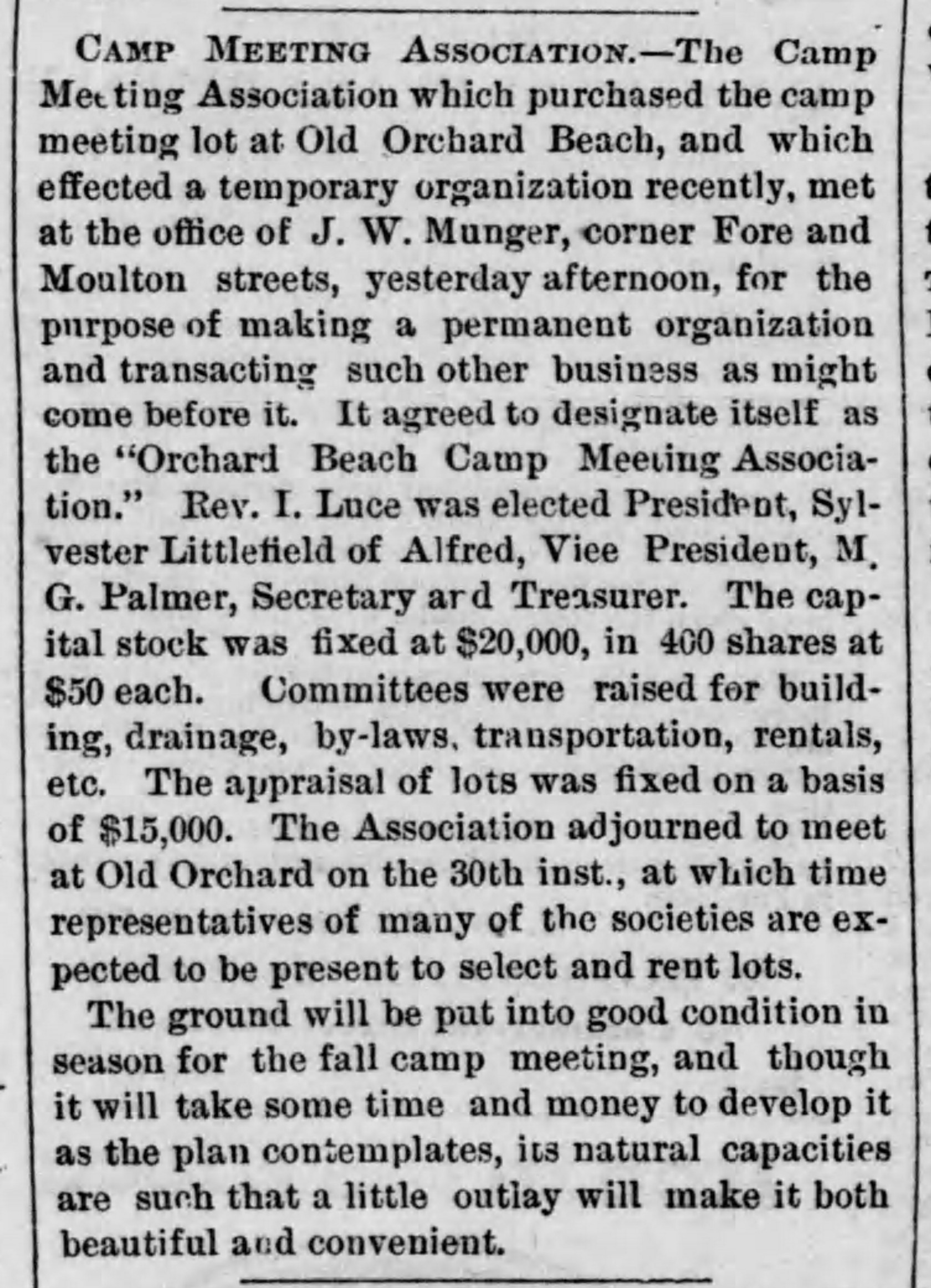
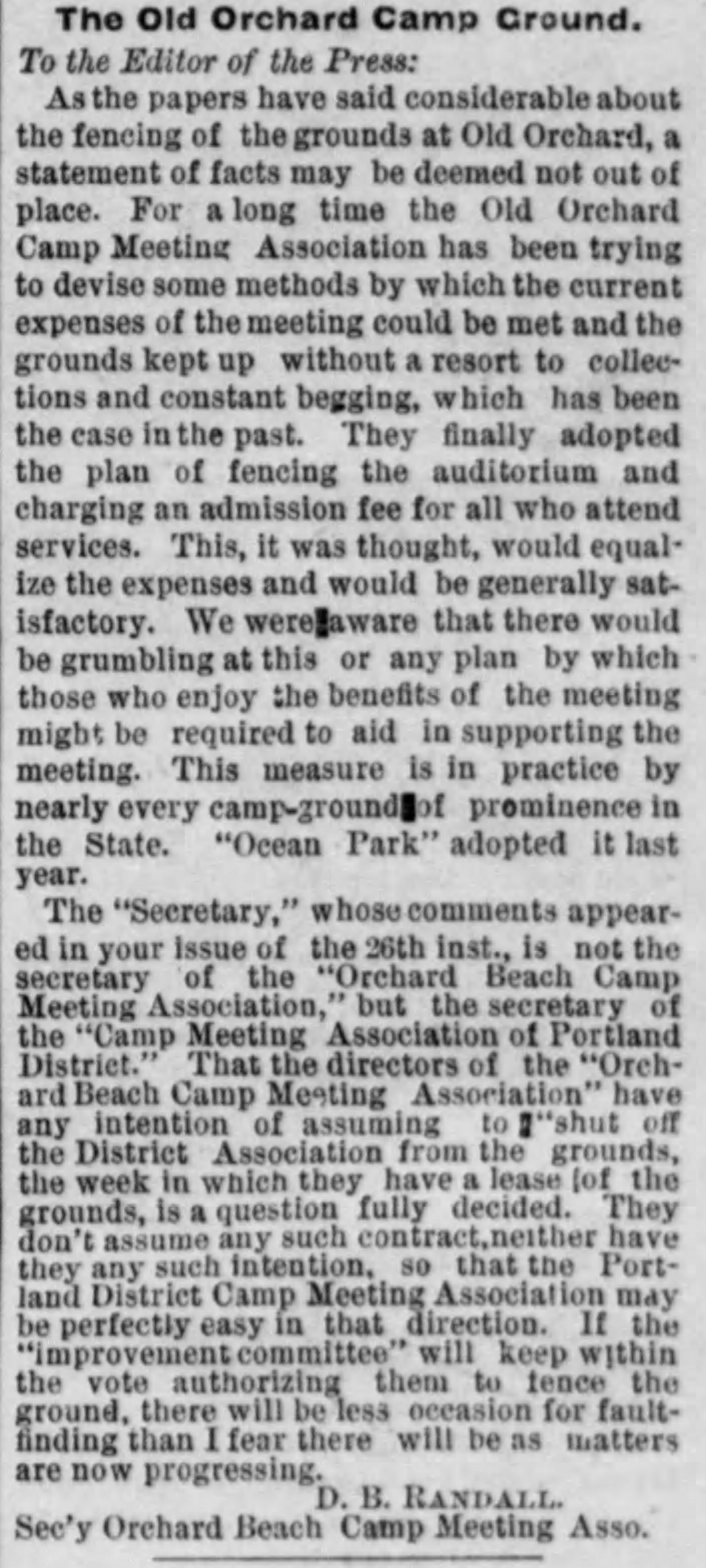

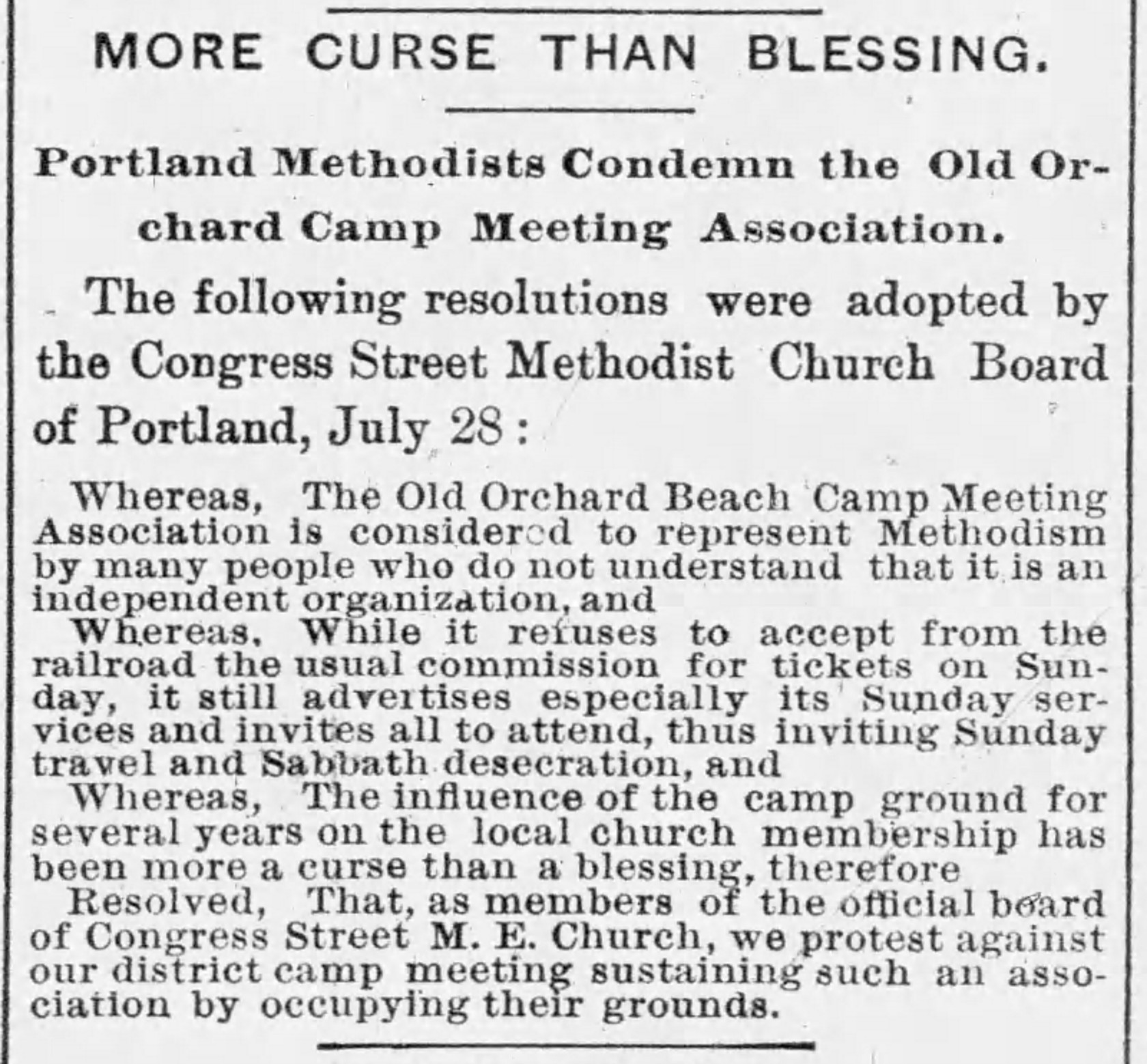
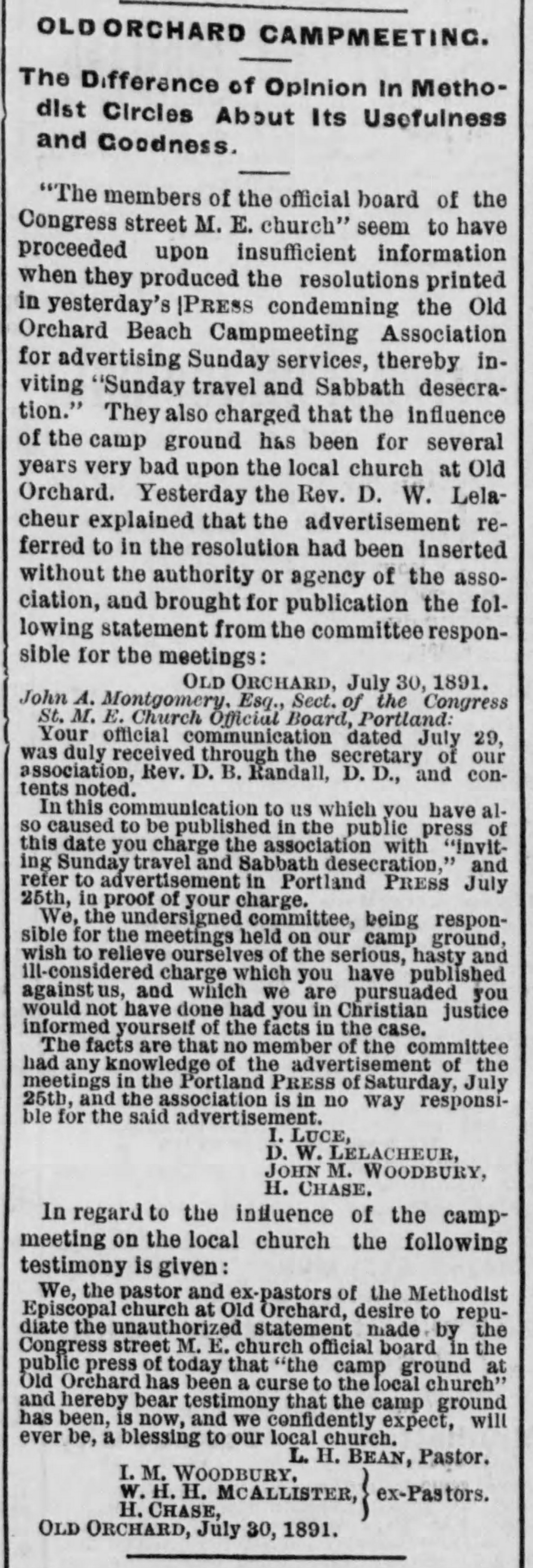

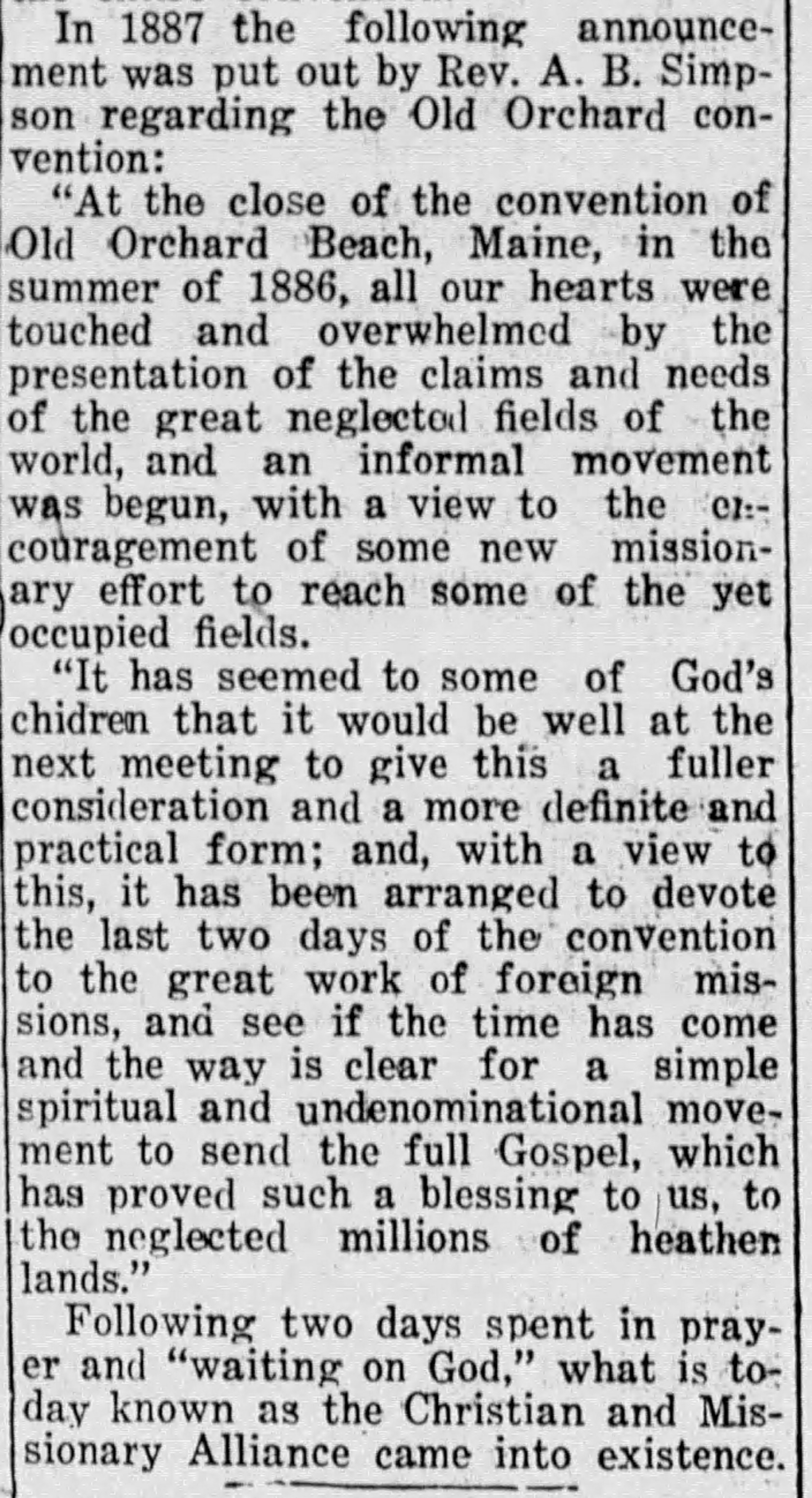
No Comments